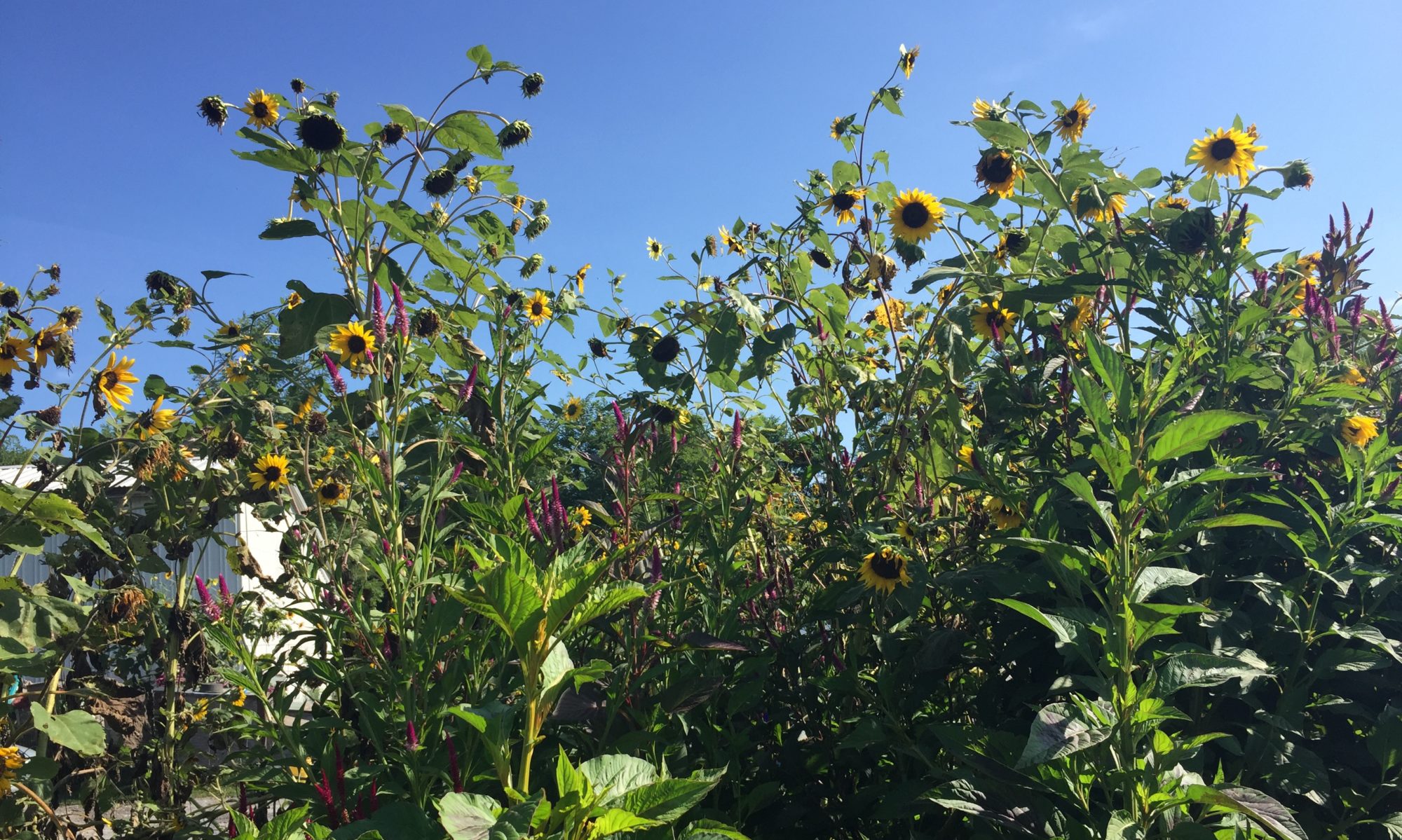The second session I attended at the Mother Earth News Fair on Saturday was “A Homesteader’s Hindsight: 20 great ideas and 20 not-so-great ideas” presented by Philip Ackerman-Leist, author of the book Up Tunket Road and professor of Environmental Studies at Green Mountain College. The idea of learning from someone else’s mistakes is perfect; who better to tell you what to do and what not to do then someone who has done it all already?
The session started off when he told the audience to first pick a realist for a partner – check! – and to be very clear in your wedding vows (buy me a farm in the mountains) – I missed this one. He said the burnout potential for homesteaders is very high, and many relationships don’t survive it. Some of his advice was pretty common sense, but would be easy to overlook in your desire for property:
- If you have a spot that wants to be a pond, make a pond
- If you have a road that wants to be a river, don’t buy the property or you will be walking in and out of your homestead
- Build a house on a firm foundation with a shaped basement (square) – heat rises
- If you are building in the north, don’t build a house on sono-tubes like they do in the south – what works in one place may not work in another
- Build a garage or tool shed first (it gives you a place to store tools so you don’t have sharp objects hanging around your living space
- Build an outhouse with a view
- Build it right the first time
- Search out your neighbors – the will be a great source of information
- Right of way – it is best not to share a driveway because you may not always agree on what needs to be done
- Always remember to check township rules and local ordinances before you buy!
- Take a chain saw safety class
- You may not need a sawmill (but try sawmillexchange.com if you do)
- Live on the site for a year or more before you build
- If you can, live in a state with good health insurance
- Don’t get kicked by a cow (whether you have good health insurance or not)
- Your community can save you/ homesteading is all about interdependence despite the “doing it on your own” hype
- Live the questions – put your values to work
- Don’t assume new always means good or old always means sustainable
- Animals and gardens will become the center of your day
- The homestead can become a constraint
- Visit other homesteads to get ideas and if you can, ask about finances – it’s the topic no one talks about that everyone needs to! – see below
- When you visit a homestead, remember you are seeing it at only one point in time. How long did it take to get there? 5 years, 20 years?
- Be clear in what type of homesteader you are
- Look for these books: New Pioneers: The Back-to-the-Land Movement and the Search for a Sustainable Future by Jeffrey Jacob and At Home in Nature: Modern Homesteading and Spiritual Practice in America by Rebecca Kneale Gould
- Don’t set yourself up to be a superhero
- Begin as a homestead and then segue into a farm if that is the direction you would like to go.
- Farming might take away from the homestead; for instance the home garden may not get as much care as your focus shifts
- Farming takes you from producing to marketing
- Thrift stores are a great way to get what you need for cheap
- BUT… you don’t want to buy someone else’s problem
- Homeschooling -> comes out of teaching to the test
- It might be a good idea if, for instance, your kids would have to spend 1.5 hours or more just getting to and from the bus stop
- Homeschooling also:
- makes you tighter as a family unit
- kids get more exercise (school has very few outside activities)
- you get “stolen lessons” – those things kids learn just by being there
- A lot of homesteaders have an off-the-homestead job to provide income that is re-invested in the farm
- The trade-off is the person who works off-homestead becomes more distant from the family
- If you feel good about what you are doing, share it!
- “You can judge a person by the integrity of their compromises”
Answers to audience questions:
- Solar panels on his farm – 800w system
- Grid tie in is better than stand-alone
- Solar Water pays off quicker than a solar electric system, so that is usually the best investment
- His house has a 24×36 basement + 2 levels and an open attic and a separate entrance for bedrooms so they can be rented
- Finances:
- $50k / year from job
- house was $140k to build
- they bought more land with an inheritance
- to prepare for college, it is better to have $ invested in land than in the bank
- pay off mortgage ASAP
The above tips were what I gleaned from the presentation, which was peppered with stories about life on his homestead. It was a wonderful, entertaining session and while the information he gave is above (to the best of my abilities), actually being there was fun! He also answered questions from the audience, and you can see the answers above.

